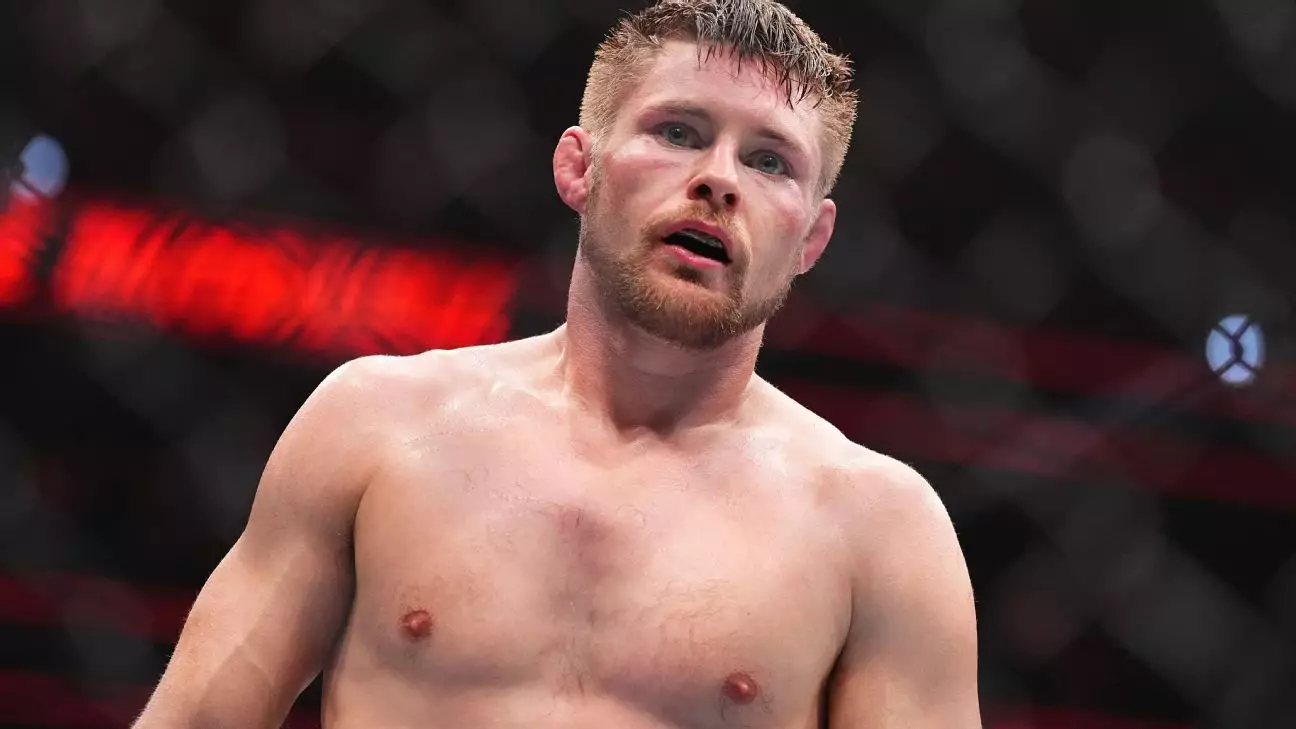Recent comments made by UFC featherweight Bryce Mitchell have ignited significant backlash and scrutiny within the sports community and beyond. In a recent episode of his podcast, “ArkanSanity,” Mitchell made alarming statements regarding Adolf Hitler, including his assertion that the dictator was a “good guy” who “fought for his country.” These assertions are not only historically inaccurate, but they also provoke deeply contentious discussions about hate speech and accountability in public discourse.
UFC President Dana White responded to Mitchell’s remarks with a pointed condemnation, labeling them as among the most ignorant statements he has encountered. White emphasized the historical context of Hitler’s actions, which led to the atrocities of the Holocaust and the systematic annihilation of six million Jews. He articulated his disbelief that anyone could defend such a figure, stating, “Hitler is one of the most disgusting and evil human beings to ever walk the Earth.” White’s stark warning about the dangers of misinformation on social media underlines a critical issue: the potential for such platforms to amplify extremist views and provide a megaphone for ignorance.
One of the more polarizing aspects of this situation is White’s claim that, despite the outrageous nature of Mitchell’s comments, the UFC would not impose disciplinary measures against him. White invoked the principle of free speech as a justification for allowing Mitchell to continue unabated. This decision raises broader questions about the responsibilities of public figures, especially athletes who are often viewed as role models by the younger generation. Should athletes be held accountable for spreading hate speech or promoting harmful ideologies under the banner of free expression? This dilemma is particularly pressing in an era where social media gives anyone, including athletes, a platform to share their views, regardless of how dangerous or misguided those views may be.
The controversy surrounding Mitchell is not merely an isolated incident; it underscores a growing trend within the sports world where athletes use their platforms to express contentious views. As fans and organizations grapple with the implications of these comments, there is a clear call for introspection. Sports organizations must reevaluate their policies regarding athlete conduct while also recognizing the pervasive influence of social media in shaping public opinion.
Moreover, as society continues to confront issues related to discrimination and hate speech, it becomes crucial for prominent figures in the sports community to advocate for social responsibility. Rather than remaining silent or dismissing harmful rhetoric as mere “personal opinion,” there is an opportunity to foster a culture that prioritizes respect and understanding over ignorance and division.
While free speech is a foundational principle in many societies, it is equally important to foster an environment where hate speech and bigotry are not tolerated. The situation involving Bryce Mitchell serves as a clarion call for both sports organizations and fans to hold individuals accountable for their words and actions. Ultimately, the future of public discourse, particularly in the realm of sports, hinges on the collective ability to challenge ignorance while promoting dialogue that is rooted in respect and inclusivity.


Leave a Reply